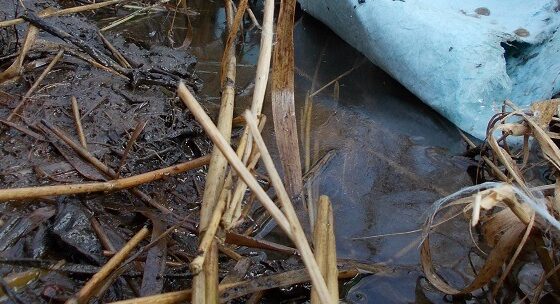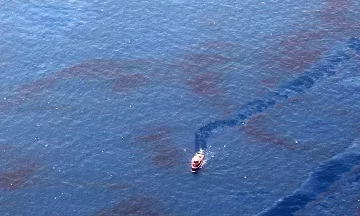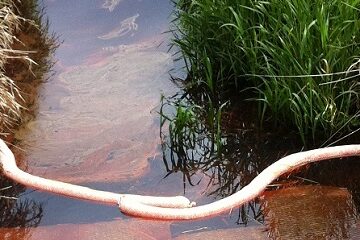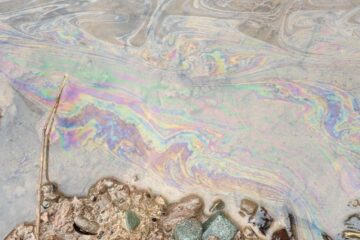We said we would keep you updated on the development of the oil spill in Mayflower Arkansas so one month on here we are and it seems like I might have spoken a bit too soon about the quality of the emergency response. Recent reports have indicated that there may be chemicals such as Methylene Chloride, Barium and Benzene at detectable concentrations within the waters of Lake Conway and other surface water bodies in the vicinity. A claim which is disputed by Exxon Mobil and the Arkansas Department of Environmental Quality (ADEQ) who have undertaken to publish their monitoring results on a regular basis.
So what is going on? Well without going out and having a look it’s hard to tell and thats assuming it’s actually possible to get close enough to see anything. However, several conclusions can be drawn. The available evidence is still very sketchy and no wrong doing has been proven. Exxon may have done an absolutely flawless cleanup and the initial coverage certainly looked good with a large, fast response. But they also have an obvious incentive to put as good a face on this as possible regardless of what’s actually occurred in Mayflower.
If (and that is a big if at this point), there has been some negligence or even simple mistakes in the clean up it would not be the first incidence of a large company putting public image ahead of veracity. A situation which is exacerbated because there is currently massive public distrust of oil companies, particularly in the USA in the wake of the Gulf of Mexico incident. So Exxon were always going to have a very tricky PR job convincing people that they’re responding properly and not putting the environment, people’s health and livelihoods at risk. Add in the incentive of damage claims against Big Oil and it’s easy to see why they appear to be keen to control the story, which in turn further adds to speculation of a cover up. That being said the incentives for residents and journalists to paint this in worst possible light should also be considered, the headline ‘nasty multinational harms small community’ makes a much better story than ‘Accident occurred, response competent and proportional’ and with so much claim and counter claim it’s hard to know what to believe.
Exxon are a huge company with massive resources to devote to a high profile incident like this and they should have access to experienced personnel. A statistic which jumped out of a recent Reuters article was that on average there is a significant pipeline spill every three days in the USA. I’m not sure what the definition of significant is in this context and the US is a big place with a large number of pipelines but an average of over 120 significant pipeline spills a year is a fair amount of oil leaking out. So it’s a reasonable assumption that the people on the ground know what they’re doing.
So back to the heart of the matter, is there contamination in the local watercourses? Surely, if the lab results show contamination or come back squeaky clean this can’t be disputed either way? Well, lab results are hard to argue with but it depends on what you sample and how you interpret the analysis as to how cast iron the conclusions are. When dealing with oil it’s intuitive to think that oil floats so if you sample the surface you’ll encounter the bulk of contamination but the reality is more complex. Oil in a watercourse can float on the surface, sink to the bottom, dissolve into the water, be adsorbed onto particles or float about in the water column as discrete ‘blobs’. This is dependent upon a range of factors such as the oil, the water chemistry, temperature and a host of other physical factors. This seems to be the source of the apparent dispute over the different sets of results. Oil spills in the environment can lead you into some very murky waters and accurately assessing and interpreting the information requires a fair bit of specialist knowledge. No doubt we’ll be revisiting this story in the future by which time things should be a bit clearer.
2022
Visit our oil spill clean up guide
Here we present answers to lots of your questions about Oil Spill clean up. We also cover prevention, health and safety, clean-up, as well as response plans and spill response services.
CHECK IT OUT







Leave a Reply